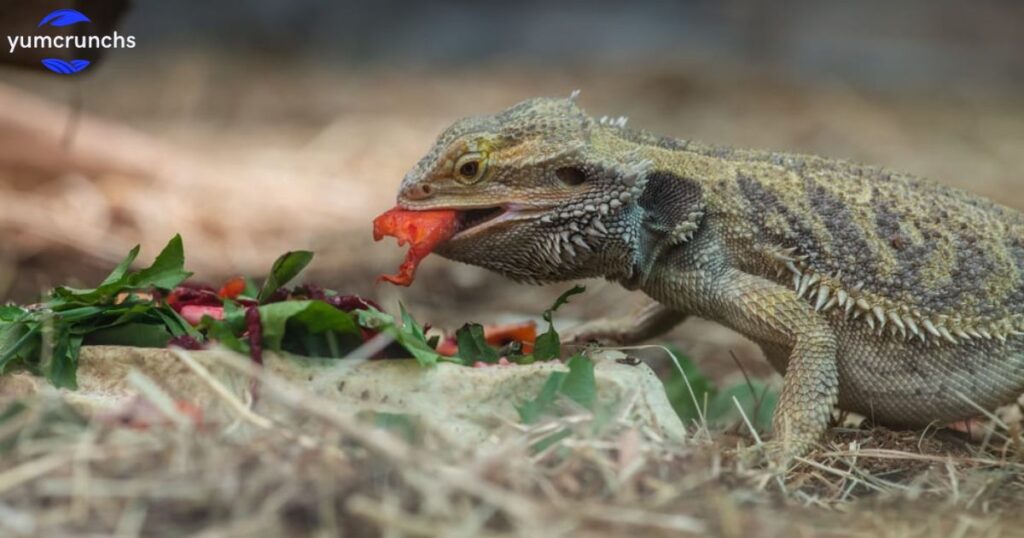Bearded dragons are small reptiles native to Australia. They are characterized by their spiny skin and the “beard” of spiky scales under their throats, which they puff out when threatened or displayed. These creatures are omnivores, meaning they consume both plant matter and insects to fulfill their dietary needs.
Imagine a sun-soaked desert landscape, where bearded dragons roam in search of their next meal. These creatures possess remarkable adaptive abilities, allowing them to survive harsh conditions with limited resources. However, despite their resilience, there comes a time when they must replenish their energy reserves through food intake.
Typically, a healthy adult bearded dragon can go without food for about 1-2 weeks. This duration may vary based on factors such as age, overall health, and environmental conditions. While they can endure short periods without food, it is essential for owners to ensure regular feeding to maintain their pet’s well-being and vitality.
How many days can bearded dragons go without eating?
Bearded dragons can go without eating for up to 2 weeks. They store fat in their tails for energy during fasting. However, it is crucial to monitor their health during this time. If you’re wondering how to build muscle, know tips to increase muscles – All about This can be found in various resources dedicated to fitness and bodybuilding.
A healthy bearded dragon should resume eating after fasting. However, if they do not, consult a veterinarian immediately. Dehydration and weight loss are signs of trouble. Offer water and seek professional guidance promptly.
How often do bearded dragons need to eat?
Bearded dragons need to eat every day as babies, while adults can eat every other day. They require a diet of insects and leafy greens for proper nutrition. A juvenile dragon should eat around 2-3 times a day to support growth.
Adult bearded dragons need to eat about every 2 days to maintain a healthy weight. It is essential to offer a variety of foods to ensure they get all the nutrients they need. Always provide fresh water and monitor their appetite for any changes.
How long can bearded dragons go without food or water?
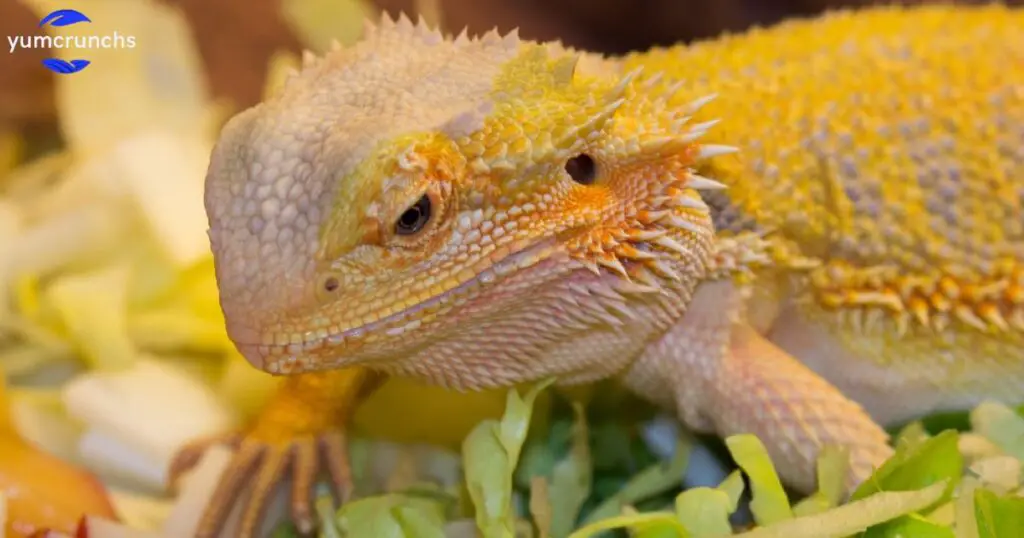
Bearded dragons can survive without food for up to two weeks, but it is not ideal. Lack of food can lead to health issues and weakness. Water is crucial, and they can become dehydrated quickly, lasting only a few days without it.
Proper hydration is vital; bearded dragons cannot survive as long without water as they can without food. Always ensure a fresh supply of water is available. If you plan to be away, arrange for someone to check on them.
How long can bearded dragons go without food during brumation?
During brumation, bearded dragons can go without food for up to 1-3 months. This period varies depending on factors like age and health. Be sure to monitor their weight and hydration during this time.
Provide fresh water regularly, but do not force-feed them. Resume feeding when they show signs of waking from brumation, such as increased activity and appetite. Always consult a reptile veterinarian for guidance on your bearded dragon’s care during brumation. What Can They Eat?
How to Force Feed a Bearded Drag
- Use a syringe to administer small amounts of food.
- Hold the bearded dragon securely but gently.
- Position the syringe at the side of the mouth.
- Slowly release the food into the mouth.
- Be patient and allow the dragon to swallow.
- Avoid overfilling the mouth to prevent choking.
- Use a specialized reptile feeding formula.
- Monitor the dragon’s weight and health closely.
- Seek veterinary advice if the dragon refuses to eat.
- Ensure the food is at the right temperature.
- Offer a variety of food options for nutritional balance.
- Handle the process with care to avoid stressing the dragon.
How long can baby bearded dragons go without food?
How long can baby bearded dragons go without food? Baby bearded dragons can typically go without food for up to 2 days. This is because they absorb nutrients from their yolk sac shortly after hatching. However, it is essential to monitor their behavior and consult a vet if concerned.
In some cases, baby bearded dragons may refuse food due to stress or illness. Ensure proper temperature and humidity levels in their habitat. If they continue to refuse food for an extended period, seek professional advice promptly.
How do I know if my bearded dragon is starving?
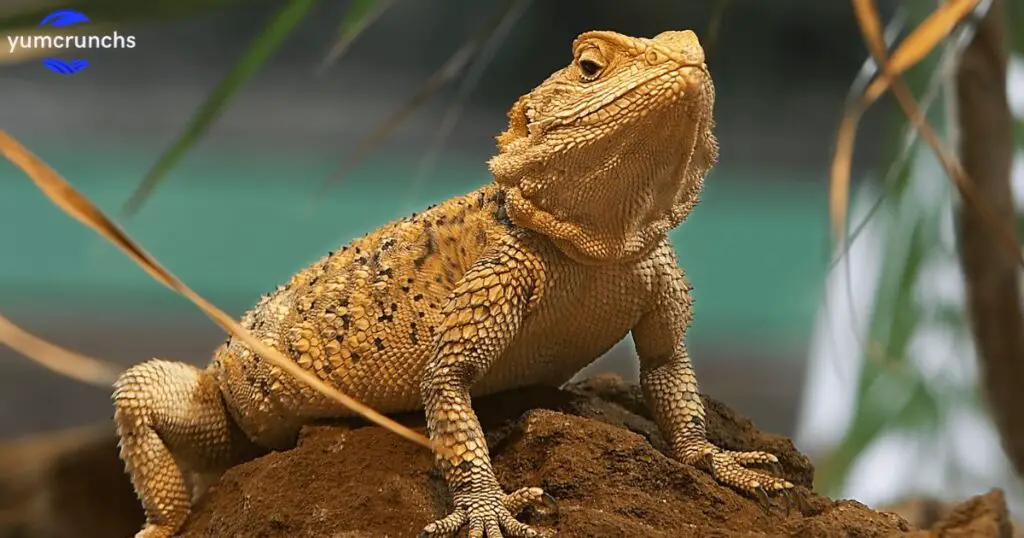
If you are worried your bearded dragon might be starving, there are a few signs to look out for. Firstly, observe its appetite. A decrease in food consumption or complete refusal to eat could indicate hunger. Additionally, watch its weight – if it is losing weight rapidly, it might not be getting enough food.
Another important sign is its behavior. A starving bearded dragon may become lethargic, weak, or show signs of depression. If you notice any of these symptoms, it is crucial to seek veterinary assistance promptly.
How do I know if my bearded dragon is starving?
Be observant of your bearded dragon’s behavior and appearance. If it stops eating or eats significantly less, loses weight rapidly, has sunken eyes, or appears lethargic, these could be signs of starvation. Additionally, check for reduced activity levels and a lack of interest in its surroundings.
If you suspect your bearded dragon is starving, consult a reptile veterinarian immediately. They can provide guidance on proper feeding, hydration, and potential underlying health issues. Adjusting its diet and providing appropriate care can help restore its health and vitality.
Why has t my bearded dragon eaten in 2 weeks?
It is concerning when a bearded dragon refuses to eat for two weeks. Several factors could contribute to this behavior. Firstly, check the temperature and lighting in their enclosure. Bearded dragons require specific heat and UVB lighting to maintain their health and appetite. Ensure the temperatures are appropriate and the lighting is providing adequate UVB rays.
Next, consider their environment and stress levels. Changes in their surroundings or feeling threatened can cause appetite loss. Ensure the enclosure is spacious, with hiding spots and proper substrate. Additionally, monitor for any signs of illness such as lethargy or weight loss. If the issue persists, consulting a reptile veterinarian is crucial for proper diagnosis and treatment.
How long can bearded dragons grow?
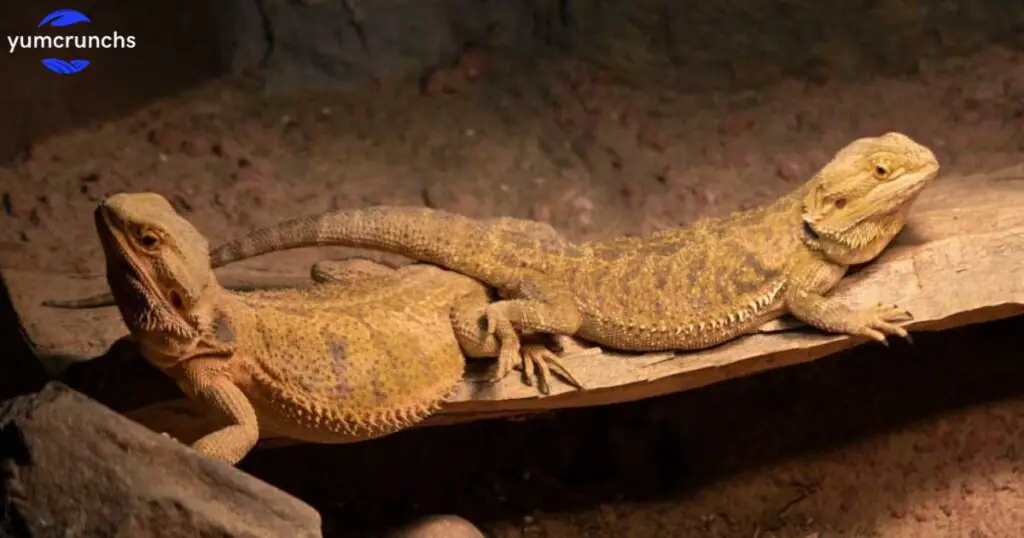
Bearded dragons can grow up to 20 to 24 inches in length from head to tail tip. Typically, they reach their full size within 12 to 18 months, depending on factors like diet and habitat conditions. Providing adequate space, proper lighting, and a balanced diet rich in nutrients can contribute to healthy growth.
Proper care and attention are essential for ensuring the well-being of your bearded dragon throughout its life. Regular monitoring of growth and health, along with visits to a reptile veterinarian when needed, can help maintain your pet’s optimal growth and overall happiness.
How long can bearded dragons go without heat?
Bearded dragons need heat to stay healthy because they rely on it to regulate their body temperature. Typically, a bearded dragon can manage without heat for a few hours, but going without heat for too long can cause problems. Without heat, they might become stressed, lethargic, and their digestion can be affected.
It is crucial to ensure that your bearded dragon always has access to a heat source, such as a heat lamp or heat mat. Without proper warmth, they can’t digest their food properly, and their overall health can suffer. Keeping their habitat warm helps, them stay comfortable and thrive.
How long can bearded dragons go without water?
Bearded dragons, like all living creatures, need water to survive. Without it, they can become dehydrated quickly. On average, a healthy bearded dragon can go without water for about 2-3 days. However, this can vary depending on factors such as age, size, and health status.
It is crucial for bearded dragon owners to ensure their pets have access to fresh water daily. Bearded dragons may not always drink water visibly, as they also absorb moisture through their skin. Regular monitoring of water intake and providing a clean water source is essential for keeping these reptiles healthy and hydrated.
How long can bearded dragons hold their breath?
Bearded dragons can hold their breath for around 10-20 minutes. This is because they have a special ability to conserve oxygen, which helps them survive in their natural habitat. When underwater, they close their nostrils tightly and slow down their heart rate to reduce oxygen consumption.
However, it is essential to provide proper habitat conditions for bearded dragons, including clean water sources with shallow areas for them to swim safely. Regular monitoring of their behavior and health is crucial to ensure they remain happy and healthy pets.
How long can bearded dragons go without pooping?
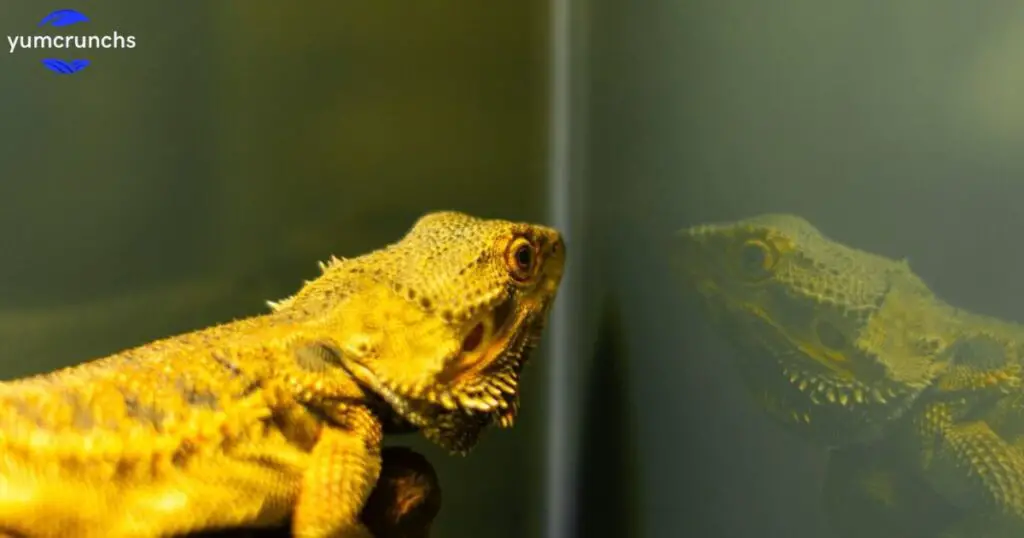
Bearded dragons can typically go without pooping for around 1 to 2 weeks. However, the frequency can vary based on factors like age, diet, and activity level. If a bearded dragon has not pooped for more than two weeks, it might indicate a potential health issue.
To ensure a healthy digestive system, it is essential to provide proper hydration, a balanced diet, and an appropriate environment for your bearded dragon. Regular monitoring of their bowel movements and consulting a veterinarian if there are any concerns can help maintain their overall well-being.
How long can bearded dragons live in captivity?
Bearded dragons can live up to 10 to 15 years in captivity when provided with proper care. Their lifespan largely depends on factors like diet, habitat conditions, and overall health. Providing a balanced diet consisting of insects, vegetables, and fruits along with proper lighting and temperature in their enclosure can contribute to their longevity.
Regular veterinary check-ups are essential to monitor their health and address any issues promptly. Ensuring a stress-free environment and handling them gently also play significant roles in their well-being. With attentive care and a suitable living environment, bearded dragons can thrive and live a long and healthy life in captivity.
How long can bearded dragons be out of their cage?
Bearded dragons can be taken out of their cage for short periods, typically around 1 to 2 hours at a time. It is important not to keep them out for too long as they rely on heat and UVB light for digestion and overall health. Being out of their cage allows them to explore and get exercise, but they still need to return to their habitat for warmth and rest.
When taking your bearded dragon out of its cage, ensure the area is safe and free from hazards like other pets or small objects they could ingest. Supervise them closely during their time out and be gentle when handling them. Returning them to their enclosure promptly ensures they can maintain their body temperature and continue their regular routines comfortably.
How long can bearded dragons live?
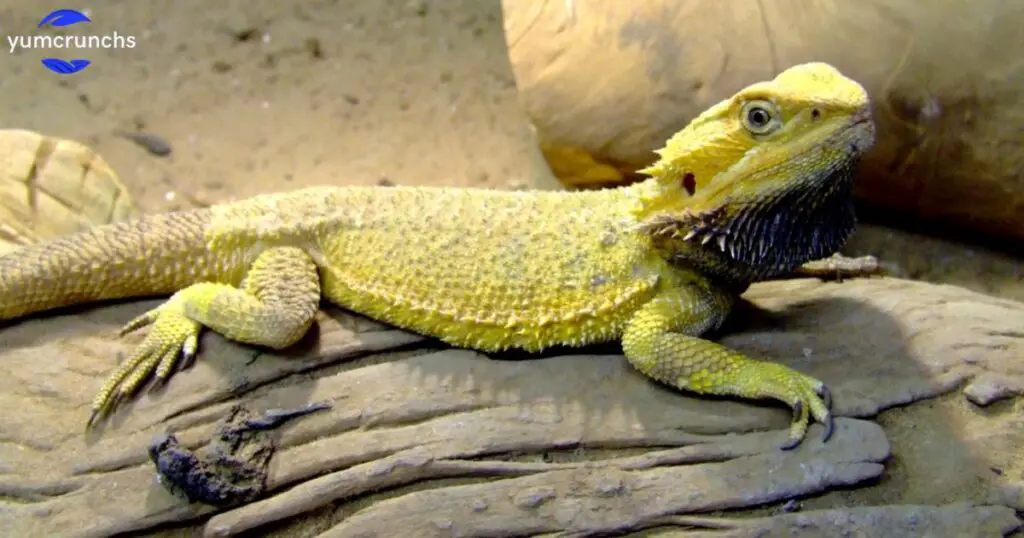
Bearded dragons can live for a long time, usually around 10 to 15 years if they’re well taken care of. Providing a proper habitat with the right temperature, lighting, and diet is crucial for their longevity. These reptiles thrive in environments that mimic their natural habitat, such as deserts in Australia. Regular vet check-ups and proper handling also contribute to their overall health and lifespan.
Factors like genetics, environment, and diet play significant roles in determining a bearded dragon’s lifespan. Providing a balanced diet of insects, vegetables, and fruits, along with proper hydration, is essential. Avoiding stressors and ensuring adequate space in their enclosure further supports their wellbeing and longevity. With proper care and attention, bearded dragons can be cherished companions for many years.
Frequently Asked Questions
How long can a bearded dragon go without food?
Generally, healthy adult bearded dragons can go up to 2 weeks without food, but it’s not recommended to let them go without food for more than a week.
Can baby bearded dragons go longer without food than adults?
No, baby bearded dragons have higher metabolic rates and require more frequent feeding; they should not go without food for more than a couple of days.
Is it normal for bearded dragons to fast for extended periods?
Yes, bearded dragons can sometimes voluntarily fast for various reasons such as brumation or illness, but prolonged fasting should be monitored closely by a reptile veterinarian.
Conclusion
In conclusion, understanding how long bearded dragons can go without food is crucial for their proper care. As we have explored in this article, these fascinating reptiles possess unique physiological adaptations that allow them to endure periods without food. However, while they can survive for some time without eating, it is essential to remember that regular feeding schedules are vital for their overall health and well-being.
By learning about their natural behaviors and dietary needs, we can provide the best possible care for our bearded dragon companions. Whether it is adjusting feeding schedules, monitoring their appetite, or seeking veterinary advice when necessary, responsible pet ownership ensures a happy and healthy life for these beloved creatures. As we delve deeper into the world of bearded dragons, we uncover not only the secrets of their survival but also the joys of nurturing and caring for these captivating reptiles.

Daniel, a seasoned author with 8 years of expertise in SEO, brings a delectable blend of culinary flair and digital finesse to the food niche on his website.

